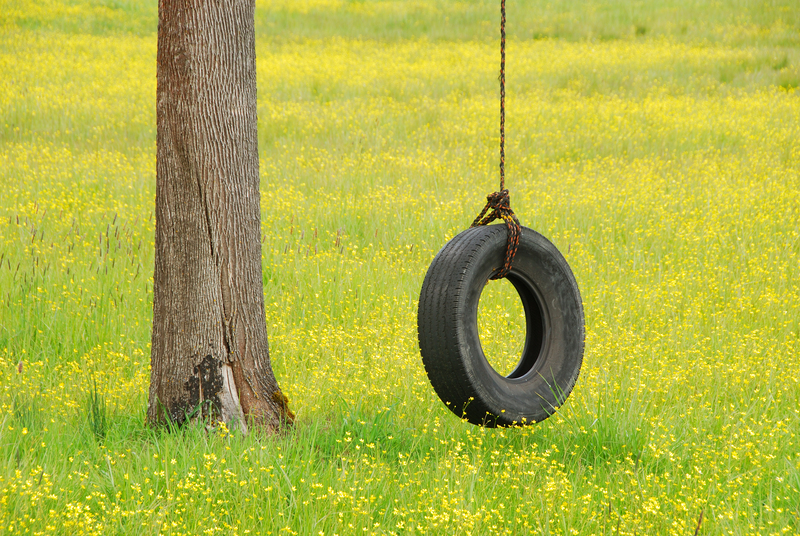The Ultimate Guide to Using Rubbish Removal Bags over Skips
When it comes to efficient waste management, choosing between rubbish removal bags and traditional skips can make a significant impact on your project's convenience, cost, and environmental footprint. In this comprehensive, SEO-optimised guide, we'll explore why rubbish removal bags (also known as skip bags, waste disposal bags, or dumpy bags) are an increasingly popular alternative to skip bins for both residential and commercial users. From detailed comparisons to practical tips, you'll discover everything required to make an informed decision for your next rubbish removal task.
What Are Rubbish Removal Bags?
Rubbish removal bags are heavy-duty, flexible, and reusable bags designed to collect and dispose of various types of waste. These bags can be purchased in various sizes and are typically made of woven polypropylene, making them sturdy and resistant to tears or punctures.
Types of Rubbish Removal Bags
- Single-use rubbish bags: Smaller, disposable bags ideal for one-time projects or household cleanouts.
- Reusable skip bags: Heavy-duty bags designed for multiple uses and more substantial loads, such as construction debris or garden waste.
- Specialist waste bags: Bags tailored for hazardous or specific waste types, such as asbestos or soil.
Key Features of Skip Bags
- Weatherproof and tear-resistant construction
- Wide range of size options for different projects
- Easy storage and manual handling
- Collection service compatibility

Why Choose Rubbish Removal Bags Over Traditional Skips?
Traditional skips have their place in waste disposal, but rubbish removal bags offer a slate of unique advantages, making them increasingly popular for modern waste management. Let's break down the compelling reasons to opt for removal bags over skips.
1. Greater Flexibility and Convenience
- Space Saving: Rubbish removal bags arrive folded, taking up minimal space until they're needed, unlike skips which demand a dedicated street or driveway spot.
- Use at Your Own Pace: Fill the bag when it suits you -- no rush or fixed timeframes for collection.
- Suitable for Tight Locations: Easily fit waste bags in setbacks, side paths, or gardens inaccessible to lorry-sized skips.
2. Cost-Effective Waste Disposal
- Lower Upfront Costs: On average, rubbish bags cost significantly less than hiring a skip, particularly for small-scale projects.
- Pay Only for What You Use: No overpaying for unused skip capacity or expensive hire extensions.
3. Simple and Fast Collection Process
- No Council Permit Needed: Most skips require council permits for placement on public land. Rubbish bags, however, can stay on your property without bureaucratic hassle.
- Quick Collection Arrangements: Once filled, you simply book a collection online or by phone--no need to coordinate skip removal dates in advance.
4. Eco-Friendly Option
- Reduced Carbon Footprint: Smaller collection vehicles reduce emissions, and reputable providers prioritize recycling.
- Reusable and Recyclable Bags: Many bags can be reused or recycled after collection, reducing landfill waste.
5. Versatile Applications
- Home renovations and DIY projects
- Garden clearances and landscaping
- Moving house or decluttering
- Construction and building site waste
- Office or commercial property cleanouts
How to Choose the Right Rubbish Removal Bag Size
Selecting the correct bag size is crucial for hassle-free waste management. Here's a quick guide to the most common sizes available and their best use cases:
- Small Bags (1 cubic yard): Ideal for minor garden waste, small room cleanouts, or bits of DIY debris. Equivalent to about 10 rubbish bins.
- Medium Bags (1.5 cubic yards): Great for bathrooms, small kitchens, or moderate garden projects. Roughly fits the content from 15 rubbish bins.
- Large Bags (4.5 cubic yards): Suits full-room renovations, old furniture, or multiple large appliances. Equivalent to about a mini-skip or 45 bin bags!
Tip: When in doubt, choose the next size up. Overfilling can prevent collection or incur extra charges!
Step-by-Step Guide to Using Rubbish Removal Bags
- Purchase Your Bag: Buy from a reputable supplier or hardware store. Ensure it's compatible with available collection services in your area.
- Unpack and Position: Lay your bag flat on firm, level ground--ideally as close to your property boundary or access point as possible.
- Fill with Waste: Add rubbish as you go. Distribute heavy items evenly for balance. Don't exceed the fill line, especially with rubble or soil.
- Book Your Collection: Contact the supplier or removal company for pick-up. Double-check their guidelines on what materials are accepted.
- Waste Removed: A truck with a crane arrives and lifts your bag away. Some providers recycle up to 95% of contents--double eco points!
Pro Tips for Effective Rubbish Bag Use
- Check Collection Access: Ensure the bag is within at least four metres of a public road without overhead obstructions for crane access.
- Avoid Prohibited Items: Most services do not accept hazardous materials (e.g., asbestos, gas bottles, tires) in general waste bags.
- Protect Your Lawn: If placing on grass, consider cardboard underneath to avoid damage from heavy loads.
Frequently Asked Questions about Skip Bags
Are Rubbish Removal Bags As Strong As Skips?
While skips are made of steel and designed for industrial loads, high-quality rubbish bags made from woven polypropylene are extremely robust and can carry significant amounts of debris--often up to 1,500kg for large bags.
What Can Be Put in a Skip Bag?
- Accepted: General household junk, garden clippings, renovation debris (tiles, timber, plaster), furniture, electrical goods (check provider limits).
- Not Accepted: Hazardous waste (paint, chemicals), asbestos, batteries, medical waste, liquids, or food waste.
Always verify with your collection provider for specific items.
Can Rubbish Bags Be Left Outside?
Yes, they are designed to withstand rain and sunlight. However, avoid sharp objects protruding, which can pierce the material over time.
How Fast Can Skip Bags Be Collected?
Many waste removal companies offer next-day or 48-hour collection services, compared to fixed skip hire periods that could be weeks.
Comparing the Costs: Rubbish Removal Bags vs. Skips
One of the standout advantages of rubbish bags for waste disposal is their remarkable price efficiency compared to traditional skips.
- Bag Price: Purchase a rubbish bag from as little as ?20. Collection fees range from ?65-?120, depending on size and location.
- Skip Hire: A 6-yard skip hire can cost ?200-?350+, excluding council permit and parking fees for roadside placement.
Verdict: For one-off, small-to-medium waste loads, rubbish removal bags are almost always the cheapest and most practical choice.
Environmental Impact of Rubbish Bags
Rubbish removal bags score highly on sustainability. Most leading removal services sort waste at recycling facilities, diverting 90% or more from landfill. The bags themselves are often recycled after pickup. By minimising the fuel and emissions associated with skip lorry logistics and avoiding permit paperwork, skip bags present a greener waste removal footprint for eco-conscious consumers.
Skip Bags vs. Skips: Pros and Cons Comparison Chart
| Feature | Rubbish Removal Bag | Traditional Skip |
|---|---|---|
| Initial cost | Low | High |
| Flexibility | High | Low |
| Space required | Minimal | Large |
| Council permit needed? | No* | Yes, often |
| Weight limits | Up to 1.5 tonnes | Varies (4+ tonnes) |
| Eco friendliness | Excellent | Varies |
| Suitable for heavy/bulky waste | Limited | Yes |
*Check your local council for footpath regulations.
When Should You Still Use a Skip Bin?
While rubbish removal bags shine for most residential and light construction waste needs, there remain scenarios where a classic skip bin may be required:
- Large volumes of heavy debris: Major renovations, demolitions, or earthworks where waste exceeds the maximum bag weight limit.
- Unsorted or mixed waste: Projects with many types of rubbish intermingled may suit a skip's volume.
- Commercial contracts: Large-scale or ongoing building operations may mandate skips for efficiency.

Top Tips for Responsible Rubbish Disposal
- Recycle and reuse: Separate out materials like metal, glass, and cardboard to increase recycling rates and reduce disposal costs.
- Choose licensed waste carriers: Always check your removal company is authenticated to handle rubbish responsibly--protecting you from liability and fly-tipping fines.
- Properly fill your bag: Lay larger items flat and distribute weight evenly to avoid damage and ensure safe lifting.
Conclusion: Are Rubbish Removal Bags the Right Choice?
In many everyday scenarios, rubbish removal bags offer a cost-effective, flexible, and eco-friendly solution over traditional skip hire. They save space, eliminate permit headaches, and are perfect for home, garden, or DIY waste management. However, for very heavy, hazardous, or bulk construction loads, conventional skips may still win out.
Always compare your waste volume, project location, and local service options before deciding which waste removal tool is best for you. Armed with the information from this Ultimate Guide, choosing between rubbish removal bags and skips has never been easier, ensuring your next clear-out is as efficient, affordable, and sustainable as possible.
Ready to start your next declutter or renovation? Explore your local rubbish removal bag services today and see the difference for yourself!